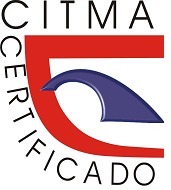Analysis of the behavior of research projects in the period 2010-2020
DOI:
https://doi.org/10.5281/zenodo.5810707Keywords:
quality, project management, research projectAbstract
A research project is the plan that is developed prior to carrying out a research work. The objective of this work is to analyze the behavior of research projects in the 2010-2020 decade, according to the contributions of other researchers. This study allows to know the main models, standards (PMBOK, PRINCE2, COBIT, ISO / IEC 21500), methodologies (PRINCE2, SCRUM, WATERFALL) and tools (SINNAPS, WRIKE, TRELLO, ASANA) used in this type of projects, taking into account count its characteristics. Another aspect that is taken into account in this research are the indicators for their success, where the use of traditional indicators stands out: time, cost and quality. Once the main mechanisms that have been taken into account in the last decade to manage research projects and expose their most relevant characteristics have been presented, this document seeks to serve as a guide for future research. Likewise, an investigation is being worked on that will offer a guide for the evaluation of projects of this nature and the elements presented in the study are taken into account.
References
JIE NG, J. (2018). Statistical process control chart as a project management tool. IEEE Engineering Management Review, vol. 46, no. 2, pp. 26-28, 1 Second quarter, june 2018, doi:
1109/EMR.2018.2834379., 26-28.
Almanza Gomez, A. I. (2012). LA APLICACION DE COBIT EN LAS ORGANIZACIONES ¿VALE LA PENA
EL ESFUERZO? Granada. España: Universidad Militar de Nueva Granada.
Asana. (02 de 05 de 2021). Asana. Obtenido de Asana: https://asana.com/product Bernal, R. E. (2020). Comparación de Herramientas para Gestión de Proyectos.
Cameron, R., Sankaran, S., & Scales, J. (2015). Mixed methods use in project management research. Project Management Journal, 90-104.
Desmond, C. (2014). Project management tools. IEEE Engineering Management Review, vol. 42, no. 4, doi: 10.1109/EMR.2014.2364656, 11-12.
Desmond, C. (2017). Project management tools-software tools. IEEE Engineering Management Review, vol.
, no. 4, doi: 10.1109/EMR.2017.2765439, 24-25.
Díaz-Balart, F. (2004). Ciencia,Técnología y Sociedad Hacia un desarrollo sostenible en la Era de la Globalización. Ciudad de La Habana: Científico-Técnica.
Diez-Silva, H. M.-E.-G. (2012). Medición del desempeño y éxito en la dirección de proyectos. Perspectiva del Manager público. Revista Escuela de Administración de Negocios, 60-79.
EAE Business School. (29 de 09 de 2020). Tipos de proyectos. Entiende qué tipologías de proyectos existen, sus características y sus fases. Obtenido de https://recursos-project- management.obsbusiness.school/descargate-nuestra-guia-gratuita-sobre-tipos-proyectos
Fernandes, G. W. (2013). Identifying useful project management practices: A mixed methodology approach.
International Journal of Information Systems and Project Management, 1(4), 5-21.
Fonseca, A., M., I., Farina, M., & Monteiro, R. (2016). Proposal of a Project Management Model for Rural Distribution Networks Projects. IEEE Latin America Transactions, vol. 14, no. 8, pp. 3713-3720, Aug. 2016, doi: 10.1109/TLA.2016.7786355, 3713-3720.
Fowler, N., Lindahl, M., & Sköld, D. (2015). The projectification of university research: A study of resistance and accommodation of project management tools & techniques. International Journal of Managing Projects in Business., 203–213.
García Regüela, A. (27 de 06 de 2017). La norma ISO 21500 sobre gestión de proyectos. Obtenido de International Dynamic Advisors: http://www.intedya.com/internacional/1493/noticia-la-norma-iso- 21500-sobre-gestion-de-proyectos.html
García, O. (2017). PMBOK sexta edición: 5 Grupos de Procesos y 10 Áreas de Conocimiento. Obtenido de proyectum.com: https://www.proyectum.com/sistema/blog/pmbok-sexta-edicion-5-grupos-de-procesos- y-10-areas-de-conocimiento/
Garzón, R., & De la Portilla, O. (2011). METODOLOGÍA PARA EVALUAR LA CALIDAD DE PLANEACIÓN
DE PROYECTOS INFORMÁTICOS. Santiago de Cali: UNIVERSIDAD ICESI. Facultad de Ingeniería.
ISO Tools Excellence. (11 de 07 de 2017). Norma ISO 21500: Guía para la gestión de proyectos. Obtenido de ISO Tools Excellence: https://www.isotools.org/2017/07/11/norma-iso-21500-guia-gestion-proyectos/ Jiménez Carrasco, J. F. (2019). Análisis de las principales herramientas de gestión de proyectos y su
adecuación a los proyectos de Tecnologías de la Información y Comunicación.
Jovanovic, P. &. (2018). Analysis of the available project management methodologies. Management: Journal of Sustainable Business and Management Solutions in Emerging Economies, 23(3), 1-13.
Karaman,, E., & Kurt,, M. (2015). Comparison of project management methodologies: prince 2 versus PMBOK for it projects. Int. Journal of Applied Sciences and Engineering Research, 4(4), 572-579.
Kerzner, H. (2009). Project Management - A Systems Approach to Planning, Scheduling, and Controlling (10 ed). John Wiley & Sons, Inc.
Kostalova , J., & Tetrevova, L. (2014). Project Management and its Tools in Practice in the Czech Republic.
Procedia - Social and Behavioral Sciences Volume 150, 15 September 2014,, 678-689.
Lam Díaz, R. M. (2005). Metodología para la confección de un proyecto de investigación. La Habana: Instituto de Hematología e Inmunología.
Marcella, M., & Rowley, S. (2015). An exploration of the extent to which project management tools and techniques can be applied across creative industries through a study of their application in the fashion industry in the North East of Scotland. International Journal of Project Management 33(4), 735-746.
Montes de Oca, J., & Perez, M. (2014). Comparación de metodologías de gerencia de proyectos Prince2 y Pmbok5 (Bachelor's thesis, Universidad Ean). Bogotá, Colombia.
Morris, P. (2010). Research and the future of project management. International journal of managing projects in business., 139 - 146.
OBS Business School. (2020). Qué hay que saber de la ISO 21500? Obtenido de Universitat de Barcelona: https://obsbusiness.school/es/blog-project-management/temas-actuales-de-project-management/que-hay- que-saber-de-la-iso-21500
PMI. (2013). Guía de los Fundamentos de la Dirección de Proyectos. (PMBOK 5ª. Ed.). PMI.
Prendi, E., & Águeda Barrero, A. (2010). PMBoK vs PRINCE2. Obtenido de https://www.slideshare.net/evergreenpm/pmbok-vs-prince2
R. Q. Gonçalves, C. A. (2018). An Instructional Feedback Technique for Teaching Project Management Tools Aligned With PMBOK. IEEE Transactions on Education, vol. 61, no. 2, pp. , doi: 10.1109/TE.2017.2774766., 143-150.
RAE. (2021). Diccionario de la Real Academia de la Lengua Española.
Saltz,, J., & Crowston,, K. (2017). Comparing data science project management methodologies via a controlled experiment. Proceedings of the 50th Hawaii International Conference on System Sciences.
Santacruz, J., Vega, C., Pinos, L., & Cárdenas, O. (2017). Sistema cobit en los procesos de auditorías de los sistemas informáticos. REVISTA CIENCIA E INVESTIGACION, 65-68.
Soto Lull, B. (2017). Análisis comparativo de las herramientas software para. Valencia. España. Trello. (02 de 05 de 2021). Trello. Obtenido de Trello: https://trello.com/home
Zhao, G., & Chen, W. (2010). A Stochastic Model for Pharmaceutical R&D Project Management in a Make- or-Buy Decision Setting. IEEE Transactions on Engineering Management, vol. 57, no. 3, doi: 10.1109/TEM.2009.2023136., 488-501.
Downloads
Published
How to Cite
Issue
Section
License
Copyright (c) 2021 Daysel Labañino Griñan, Arturo Orellana García

This work is licensed under a Creative Commons Attribution-NonCommercial 4.0 International License.













